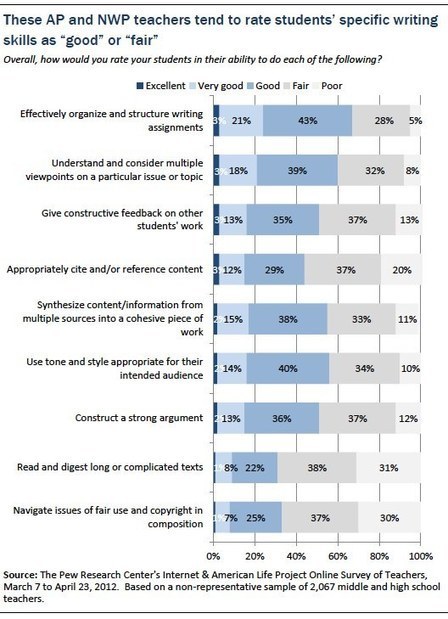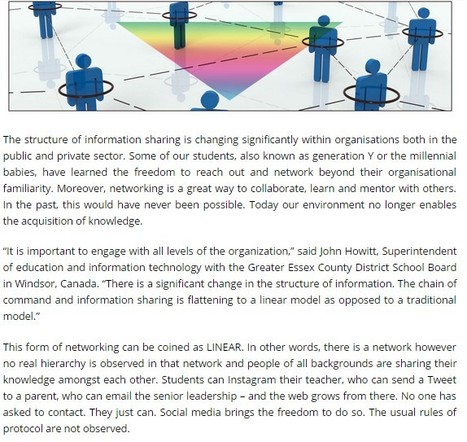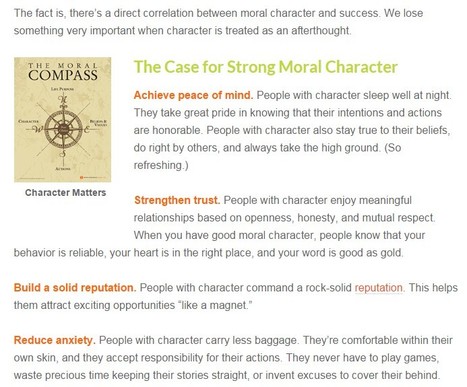This form of networking can be coined as LINEAR. In other words, there is a network however no real hierarchy is observed in that network and people of all backgrounds are sharing their knowledge amongst each other. Students can Instagram their teacher, who can send a Tweet to a parent, who can email the senior leadership – and the web grows from there. No one has asked to contact. They just can. Social media brings the freedom to do so. The usual rules of protocol are not observed.
Generation Y has been setting a precedence as a generation that wants to network linearly as collaborators of a community that transfer knowledge from one to another. The idea that they need permission to contact a superior before contacting another and another… is quickly becoming obsolete, because they can reach out to anyone through social media. Therefore, why bother asking! It can be said that Generation Y were raised with the notion that they have access to everyone, from teachers after school hours, to celebrities, to the CEO of companies.
“In a traditional model of networking you would go through your immediate supervisor to obtain information,” said Howitt. “However, we are seeing many examples of skipping those traditional steps in the chain of command and creating a linear network of information sharing.”
Via
Gust MEES



 Your new post is loading...
Your new post is loading...
















Learn more:
https://gustmees.wordpress.com/?s=PracTICE
http://www.scoop.it/t/21st-century-learning-and-teaching/?tag=Blogging
This article lists some great pieces of advice for anyone blogging out there.